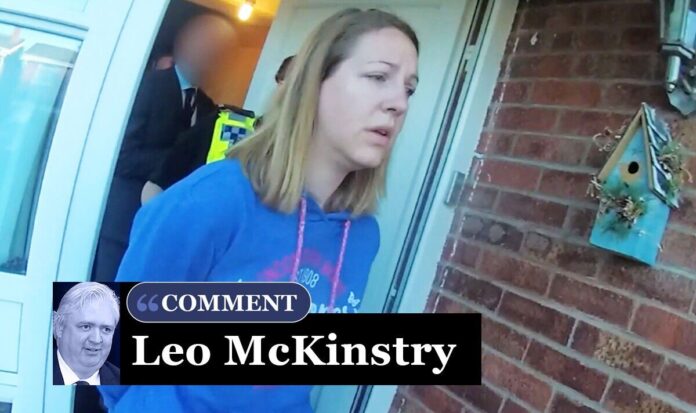The horror of Lucy Letby’s crimes continues to send waves of shock across the nation. It is almost beyond comprehension that a woman employed to protect vulnerable infants should turn out to be an agent of torture and death. But what makes her lethal sadism all the more chilling is the evidence that her managers at the Countess of Chester Hospital failed to take action against her, even as a string of doctors in the neonatal unit raised their concerns that Letby was inflicting terrible harm on the babies there. In a sick inversion of morality, these officials showed more concern about preserving the hospital’s reputation than the lives of the innocent. To that end, they not only painted Letby as a victim needing support rather than removal from the unit, but even turned their fire on the doctors, who had their careers threatened and their pleas for action dismissed. Episodes like that make this one of the darkest scandals in modern British history. The Kafkaesque collapse in basic ethics and compassion has led to calls for a new separate, independent regulator so that hospital administrators have to comply with professional standards. Dr Stephen Brearey, who was one of the first to voice his suspicions about Letby, is an advocate of such a move, complaining that at present ‘there doesn’t seem to be any system of accountability’. Lucy Letby arrested for murder (Image: Getty) This demand for organisational restructuring is typical of the fall-out from almost every major scandal in the NHS or the public sector. The widespread belief that action must be taken to ensure ‘it never happens again’ so often results in a promise that ‘procedures will change’ or a ‘powerful new watchdog’ will be created. But the faith in the expansion of regulatory bureaucracy is badly misplaced. Extra layers of officialdom will not strengthen the humanitarian impulse, nor can benevolence be enhanced by extra rules. Regulatory tinkering just gives the illusion of rigour but can be dangerously counter-productive, where the promotion of a box-ticking, form-filling, data-collecting mentality actually undermines the connection with human lives. In this kind of bureaucratic climate, the obsession with process becomes an end itself, corroding the officials’ sense of responsibility. During the 2007 scandal in Haringey over the death of Baby P at the hands of his carers, despite the involvement of a range of professionals, the borough’s director of social services and education Sharon Shoesmith repeatedly stressed that she had followed all the correct guidance, as if that excused her failure to run an effective department. Dr Nigel Scawn, medical director at the Countess of Chester Hospital speaks out (Image: Getty) The idea that the NHS has too little regulation is absurd. The opposite is true. The entire regime is drowning in guidelines and inspections, overseen by sclerotic, sprawling public bodies such as the Care Quality Commission, the GMC, 150 local Healthwatch Units, the Professional Standards Auth- ority and the Health and Safety Executive. The rights of whistleblowers are meant to be upheld by the ‘Freedom to Speak Up Guard- ians’ Office’ though this outfit seems to have had zero influence at the Countess of Chester Hospital. In addition, managers have their own regulatory professional bodies like the Chartered Management Instit- ute and the Chartered Institute for Personnel Development. What is lacking in this saga is not regulation but basic ethical practice and human decency. All too often these empires of waste are part of the problem rather than the solution. So the Nursing and Midwifery Council was found by an independent inquiry to have ‘undoubtedly put lives at risk’ by its wilful disregard for safety concerns in the Morecambe Bay NHS scandal, in which 11 babies and a mother died between 2004 and 2013 due to ‘serious failings in clinical competence and integrity’. The sorry experience of the NHS is mirrored throughout the public realm. Corporate Britain is awash with regulators but so many of them are hopelessly ineffectual. The Financial Conduct Authority did nothing to prevent the recent de-banking scandal, just as the water regulator Ofwat has been useless in stopping raw sewage being dumped in our rivers and along our coasts. The energy regulator Ofgem did not foresee the surge in gas prices; nor did Ofcom take any meaningful steps to halt the recent spike in phone bills. The system is plainly not working. Adding to its burdens will not help. What we really need is the restoration of a real sense of moral purpose and humanitarian values.


